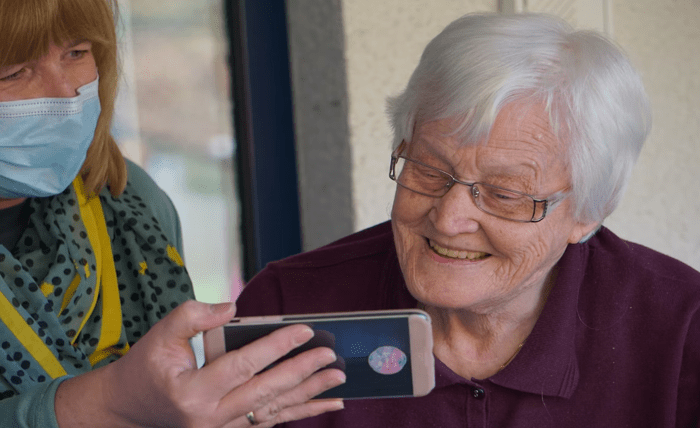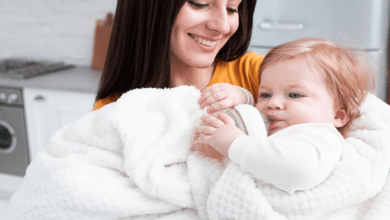
When people receive home care, they are not just getting medical help or daily support. They are welcoming a caregiver into their personal space and lifestyle. This makes cultural understanding a vital part of providing quality care.
A March 2024 study conducted in southwest Ethiopia shows that nurses who were culturally sensitive were better at providing patient-centered care. The study points out that 40.3 percent of nurses maintained cultural sensitivity while delivering routine services.
However, in many places, especially in the US, this percentage might be a lot less, and that’s a bit of a problem. After all, every individual has unique customs, languages, and beliefs that shape how they view health, illness, and aging. Cultural sensitivity in home care ensures that professional caregivers respect and adapt to these differences while maintaining trust, comfort, and dignity.
Understanding the Importance of Cultural Sensitivity in Home Care
In the context of home care, cultural sensitivity involves recognizing how a person’s cultural background affects their preferences, decisions, and reactions to care.
For example, dietary habits and religious practices often vary widely across cultures. Research shows that 28 percent of the US population above the age of 65 are religiously affiliated. At the same time, another study highlights that the prevalence of obesity in American adults aged 60 or older is 38.9 percent. Hence, they might be more inclined to opt for healthier meals if given the right guidance.
A home care provider who understands these distinctions can tailor their approach to fit the client’s needs. According to AmeriBest Home Care, top home care providers have bilingual caregivers and flexible scheduling. They also offer a deep commitment to cultural understanding.
You can get a more in-depth understanding of how cultural sensitivity functions in this way for home care services by visiting www.ameribesthomecare.com. When caregivers are trained to be culturally sensitive, they can help build a supportive environment where clients feel respected and understood. This approach helps build stronger relationships between caregivers and clients, resulting in improved cooperation and better overall care.
How Cultural Awareness Impacts Quality Care
Quality care is not only about following medical procedures or managing daily routines. It also involves emotional connection and trust. Clients are more likely to respond positively to professional home care services when they feel their culture is acknowledged.
For instance, some families prefer that certain caregiving roles be performed by a same-gender caregiver. Others may have specific expectations about meals or privacy.
A culturally aware caregiver will know how to handle these preferences without making the client uncomfortable. Cultural sensitivity also helps prevent misunderstandings that might lead to frustration or withdrawal from care services.
Building Trust Through Cultural Understanding
A 2025 study found that patients who trust their healthcare professionals have significantly lower odds of delaying medical care. Such trust is also one of the most important aspects of successful home care.
This trust allows clients to be more open about their needs and challenges. It also encourages family members to collaborate more actively with the home care provider.
Professional caregivers who show cultural awareness can quickly identify subtle cues or preferences that others might miss. This level of attention leads to a stronger emotional bond and a sense of safety for the client.
In a home care setting, such trust can make the difference between passive assistance and genuine, compassionate support.
The Importance of Communication in Culturally Sensitive Care
Effective communication is the foundation of cultural sensitivity. A caregiver must listen actively, ask respectful questions, and avoid making assumptions.
Language barriers can often lead to confusion or misinterpretation. Professional home care services frequently address this by matching caregivers with clients who share similar linguistic backgrounds or by using translation tools.
A culturally aware caregiver understands these nuances and adapts their behavior accordingly, ensuring that communication remains respectful and clear.
FAQs
How exactly can professional home care services ensure that they are maintaining cultural sensitivity in their care approach?
Professional home care services can ensure cultural sensitivity by training caregivers to recognize and respect differences in traditions, communication, and family roles. These professional home care services also encourage open dialogue with clients and families to understand specific needs. Continuous feedback, cultural awareness programs, and assigning caregivers familiar with the client’s background further strengthen this approach.
Why is cultural awareness so important when committing to the responsibilities of a professional caregiver?
Cultural awareness allows a caregiver to connect more deeply with clients by respecting their beliefs, habits, and preferences. Such cultural awareness further prevents misunderstandings that can disrupt care and helps create a comfortable, trusting environment. A culturally aware caregiver can better interpret a client’s needs, resulting in improved satisfaction and overall health outcomes.
What exactly is the importance of communication when it comes to culturally sensitive home care?
When it comes to home care, communication is key to understanding and meeting a client’s cultural expectations. Caregivers who listen attentively and communicate clearly can avoid conflicts or discomfort. Whether through shared language or respectful questions, good communication ensures that both the caregiver and client are always aligned and at ease.
In the modern world, cultural sensitivity is no longer just another optional skill in home care. At present, it is one of the most vital elements of quality care and human connection.
When professional caregivers respect their clients’ traditions and beliefs, they create an atmosphere of trust and comfort. This sensitivity enhances not just emotional well-being but also physical health outcomes.




